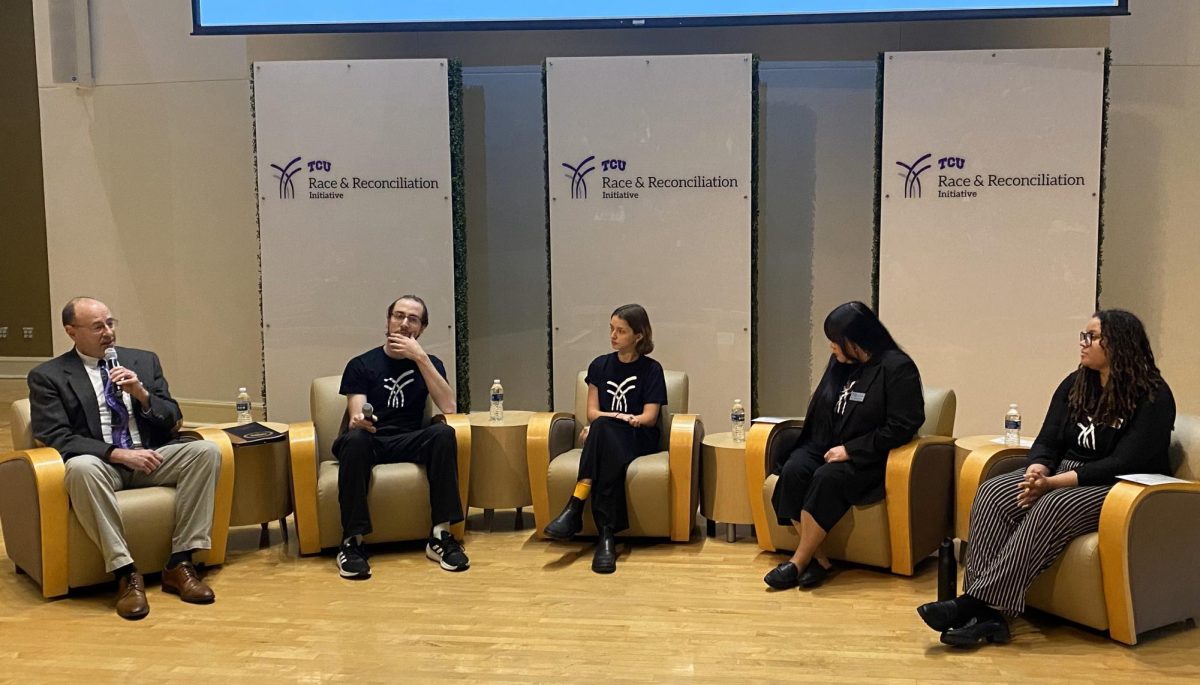A Sports Illustrated/CBS news report ranked TCU’s football program best among SI’s preseason top 25 with the fewest number of players with criminal records. TCU had zero, but athletic administrators have declined to comment on what exactly TCU has done to achieve that.
TCU and Oklahoma were the only two schools of the top 25 teams listed that performed regular background checks, according to the Sports Illustrated article.
Head football coach Gary Patterson told CBS correspondent Armen Keteyian every TCU student-athlete being considered for scholarship undergoes a criminal background check.
In the CBS interview, Patterson said, “Every student-athlete who comes to TCU gets a deep background check if they’re going to be on scholarship. So we go very deep.” Keteyian asked if the background checks were criminal background checks and Patterson replied “yeah.”
Director of Athletics Media Relations Mark Cohen and Athletics Director Chris Del Conte would not comment on if TCU conducted criminal background checks on its athletes.
Dean of Admission Ray Brown said the wording of the university’s general application has not changed regarding whether or not students have been convicted of a felony.
According to a 2006 Daily Skiff article, Chancellor Victor Boschini said the university had considered adding questions that would gather more information about applicants.
Boschini’s comments followed a case in which three athletes were charged with sexual assault.
The article found that two other athletes also had felony criminal records before their admission to TCU.
Brown said recently that either the College Board or the National Associated for College Admission Counseling met about two years ago to consider rewording admission applications to specify whether an applicant had deferred adjudication, which delays a court’s ruling while the defendant completes community supervision. Charges will usually be dismissed if that supervision is completed, he said.
However, the national admission organization did not alter the wording of the felony question, Brown said.
Brown said while universities decide how to word the felony question, they tend to follow the national admission organizations because they have think tanks and support from legal groups.
According to the 2006 Daily Skiff article, an applicant can answer negatively to the application’s question about being convicted of a felony if his or her adjudication was deferred.
Currently the application asks “Have you ever been convicted of a felony?”
Brown wrote in an e-mail, “We do not conduct background checks on anybody (including Chancellor Scholars) who doesn’t have a felony on the record.
“There is nothing to prevent a student from lying on the application in really a variety of places 8212; the felony question being just one,” Brown wrote. “Generally, though, most folks are aware that admission will be revoked if there is any error of significance discovered.”
Criminal charges in the 2006 sexual assault case were dropped in 2008. The plaintiff, K.S., filed a civil suit in 2008, which is scheduled to go to trial May 2. The plaintiff in the suit alleges TCU fraudulently misrepresented campus safety by allowing athletes with known criminal records to attend the university.
According to documents filed by K.S., she was drugged and sexually assaulted in 2006 by three former university athletes.
News Now Sports Director Madison Pelletier contributed to this report.




